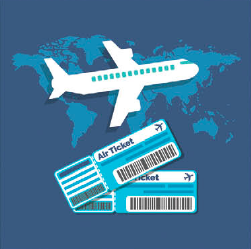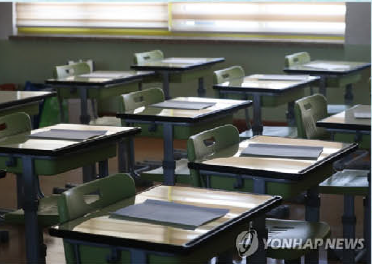Kingos can experience and learn about diverse cultures and languages from overseas universities through exchange student programs, in which students can apply after finishing at least two semesters. Sungkyunkwan University (SKKU) has been a bridge between students and partner universities. The bridge, however, collapsed due to the coronavirus disease 2019 (COVID-19) this year. Moreover, some of the universities have canceled their exchange programs for 2021. Therefore, the Sungkyun Times (SKT) would like to talk about exchange student programs, the problems that occurred after the outbreak of COVID-19, and the possible solutions.
What Is the Exchange Student Program?
An exchange student program allows students to visit overseas universities, which sign an exchange agreement with SKKU for one or two semesters. The program is divided into two parts: an outbound exchange, which allows students to study abroad at partner universities, and an inbound exchange when students from around the world come to SKKU. The exchange student program is different from the study abroad program as students in the former program only pay tuition fees to SKKU, while the students in the latter program have to pay tuition to both SKKU and their home universities. Exchange students are selected every semester, and it is helpful for students as it provides an opportunity to experience different languages and culture and have broader and more enlightened perspectives. Unfortunately, international interaction programs such as the exchange student program have been put on hold this year since COVID-19 is spread all around the world in the first half-year. For example, the exchange program was canceled, and students were notified to return to their countries. The following schedule for the exchange program is uncertain as well. The cancellation of the international interaction system is a regrettable phenomenon in this era of globalization as it restricts the chance to experience diverse culture and sets a barrier for learning.
Problems with the Exchange Student Program happened After COVID-19
Inbound Problems

Various international communication programs were canceled, making students unable to broaden their perspectives. For example, the International Summer Semester (ISS) and Winter International Student Experience (WISE) are canceled this year. Moreover, students who planned to participate in the program have to change their plans as the program has been canceled. When COVID-19 was at its peak, the governments in other countries stopped students from studying abroad, especially in Korea. Some universities in the United States (US) recommended students studying in Korea to return to their own countries. According to an interview in Seoul Economics Daily in February, an American student who visited Korea for studying was concerned about returning to the US because her family members worried about her health, and most of her friends had already returned to their home countries. Furthermore, international students had a flight problem since there were not enough seats heading to Korea. Last semester, some professors asked students to take offline exams which made international students visit Korea. Most of the flight schedules, however, were canceled, so they had trouble visiting Korea. Due to the COVID-19 issue, there was only one flight per day from New York to Korea in March, and the cost of tickets rose by three times compared to the prices before COVID-19.
Outbound Problems
➊ Difficulties that Korean Students Suffer due to Covid-19
As COVID-19 was first identified in China, discrimination toward Asians grew strong after COVID-19. For instance, a Korean couple who went to Germany to study was hit and ridiculed by the natives saying, “Corona, corona party, Happy corona day!” on the subway. Due to this kind of discrimination, students who went abroad to study were not able to adjust to their new environments well. Also, there was a problem with visas for students who need to stay abroad. In July, the US announced that there would be no visa for exchange students who took online classes, forcing the students to leave the countries without their will. To be more specific, Lawrence S. Bacow, the new president of Harvard University, announced a rule through the daily student newspaper, the Harvard Crimson, that students who possess F-1 or M-1 type visas are not able to stay in the US when they take online classes. Since the students are not able to live in the US anymore, they have to return to their own countries and take online classes in their own countries. Especially for Asians who are living on opposite sides of the Earth, time difference exist that make students feel tired when they are following the time in the US. They have to take classes late at night and then sleep during the day, which can destroy their life patterns.

➋ One-Sided Notification of Program Cancellation by Some Universities
With this one-sided cancellation, students are encountering various problems. Universities in North America and Europe usually start semester in fall, which is a different schedule from universities in Korea. Last semester, students who went abroad for the student exchange program had to come back during the semester to Korea. Even though they returned to Korea and tried to start a new semester, it was not easy since the schedule is different. The registration for the courses had already ended at that time. Moreover, some universities abroad already announced the cancellation of the exchange programs for the first semester in 2021, and it is unclear when the programs will restart. With these cancellations, university students are facing communication problems with international students abroad.
For the Improvement of the Exchange Student Program in COVID-19
Changes to Application Systems
Exchange students need support systems when the program is canceled abruptly, and they have to enroll in classes. Extending the period for enrollment of lectures for the students whose exchange program is canceled can be one possible solution. Also, offering the choice and priority for the following exchange student program will be helpful. If students planned to go to foreign colleges this semester but they were canceled due to COVID-19, the school should offer a choice to students whether to go to the same universities next semester. For example, Konkuk University gave the chance to delay the exchange program to the next semester. Furthermore, those students should be given the priority to be selected for the next exchange programs. However, SKKU does not have any benefit for the students whose exchange program was canceled. It is necessary to offer the choice and priority since the program was canceled inevitably due to disaster regardless of the student’s intention.
Activation of Online Programs
Students from different countries met each other offline while participating in international programs, but it is hard to meet offline nowadays. As exchange students, however, come to experiencing the diverse culture, turning offline programs into online might help students to further encourage interaction with each other during the COVID-19 pandemic. Now, SKKU presents online programs such as Let’s Talk, which allows Korean students and international students to debate and share their thoughts about specific topics. Although there are some programs online, most of the programs have been canceled. As some programs like lectures on Korean culture and watching performances can be turned into online courses, students can still experience cultural diversity indirectly online.
Quick and Precise Communication
It is important to communicate between the school and students as schedules are canceled and changed abruptly. First, in the case of students who are living overseas, the school should check whether a student should return or stay by asking them if it is possible to study abroad or not. If it is judged to be dangerous, schools need an act to encourage them to come back. Next, for students who planned to study abroad but canceled before going overseas, schools should inform clearly whether it is canceled or not, and the reason for the cancellation. Informing whether or not the program is postponed or whether students should prepare again if they want to go next semester is important. Communication between universities is essential as well. It confuses students when schools cancel the program unilaterally or answer slowly. According to Maeil Broadcasting Network (MBN) news, a student at Seoul National University (SNU) was notified that the exchange program was canceled all of a sudden by one US university, which she planned to go to. The SNU student said that SNU left a message that the university did not have plans yet and would get into discussion soon. The US university explained that they sent emails three times to SNU for negotiation, but it did not receive any response from SNU. Therefore, quick and precise communication is necessary between universities for students.
Exchange student programs that provide good experiences like sharing each other’s cultures and learning languages have been canceled due to COVID-19. It eliminates the synergy effect that students from different countries gather. SKKU and partner universities should help students to have a chance for communicating with international students before they go into society despite a current negative reality.
